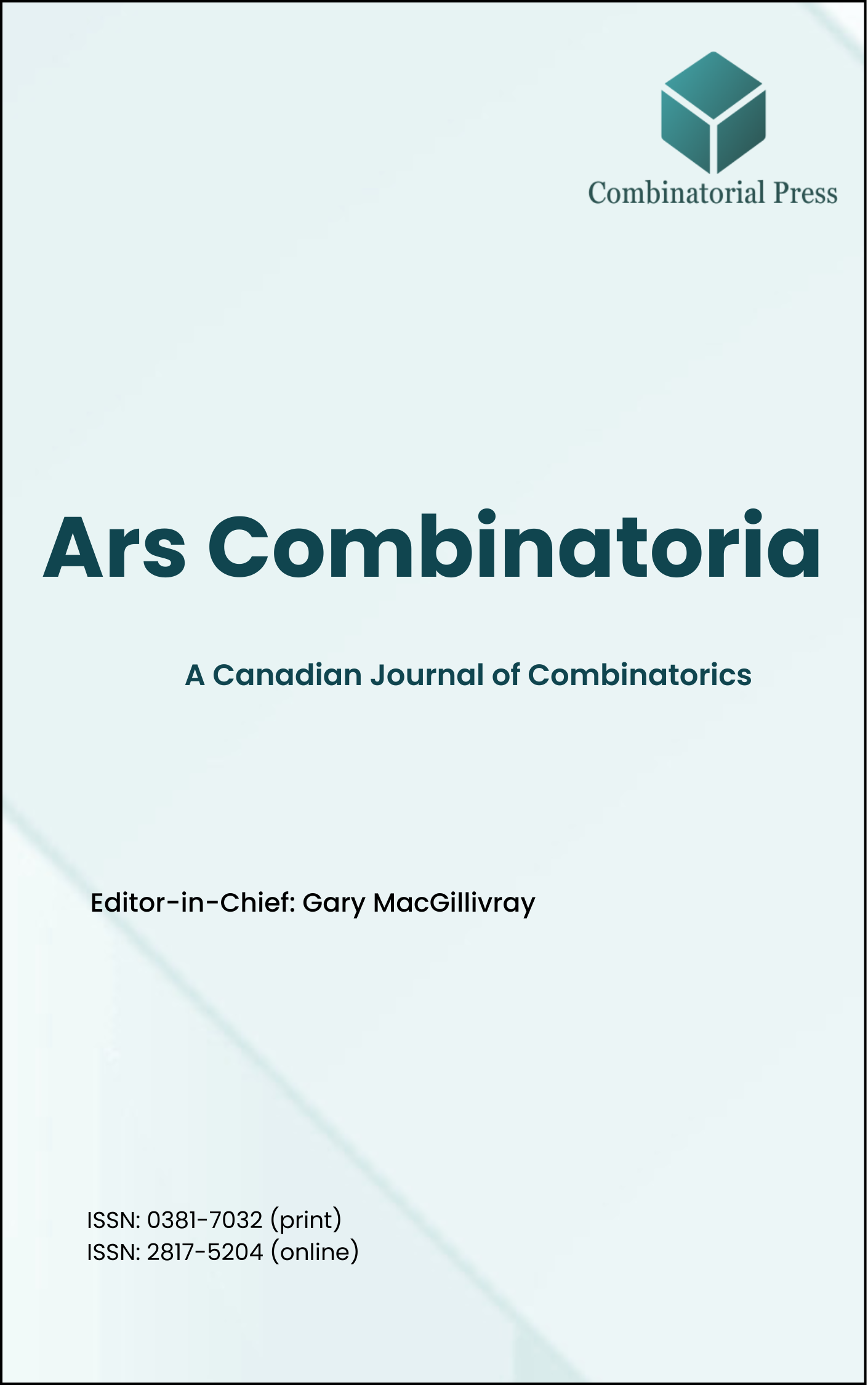
Ars Combinatoria
ISSN 0381-7032 (print), 2817-5204 (online)
Ars Combinatoria is the oldest Canadian Journal of Combinatorics, established in 1976. The journal is dedicated to advancing the field of combinatorial mathematics through the publication of high-quality research papers. From 2024 onward, it publishes four volumes per year in March, June, September and December. Ars Combinatoria has gained recognition and visibility in the academic community and is indexed in renowned databases such as MathSciNet, Zentralblatt, and Scopus. The Scope of the journal includes Graph theory, Design theory, Extremal combinatorics, Enumeration, Algebraic combinatorics, Combinatorial optimization, Ramsey theory, Automorphism groups, Coding theory, Finite geometries, Chemical graph theory but not limited.
Information Menu
- Research article
- Full Text
- Ars Combinatoria
- Volume 029
- Pages: 21-23
- Published: 30/06/1990
Constructions of partially balanced incomplete block designs with three and four associate classes are given. The constructions use \(\epsilon\)-designs for \(t=6\) and \(t=8\).
- Research article
- Full Text
- Ars Combinatoria
- Volume 029
- Pages: 13-20
- Published: 30/06/1990
Let \(X\) be a finite set of order \(mn\), and assume that the points of \(X\) are arranged in an array of size \(m \times n\). The columns of the array will be called groups.
In this paper we consider a new type of group divisible designs called modified group divisible designs in which each \(\{x,y\} \subseteq X\) such that \(x\) and \(y\) are neither in the same group nor in the same row occurs \(\lambda\) times. This problem was motivated by the problem of resolvable group divisible designs with \(k = 3\), \(\lambda = 2\) [1] , and other constructions of designs.
- Research article
- Full Text
- Ars Combinatoria
- Volume 029
- Pages: 3-12
- Published: 30/06/1990
FE. Bennett has proved that a \((v, 4, 1)\)-RPMD exists for every positive integer \(v \equiv 1 \pmod{4}\) with the possible exception of \(v = 33, 57, 93\) and \(133\). In this paper, we shall first introduce the concept of an incomplete PMD and use it to establish some construction methods for Mendelsohn designs; then we shall give the following results: (1) a \((v, 4, 1)\)-PMD exists for every positive integer \(v \equiv 0 \pmod{4}\) with the exception of \(v = 4\) and the possible exception of \(v = 8, 12\);(2) a \((v, 4, 1)\)-PMD exists if \(v = 57, 93\) or \(133\).





